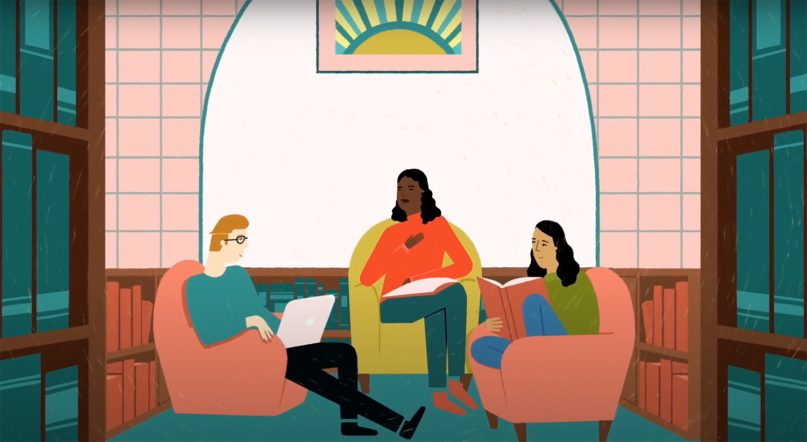(RNS) — Religious and cultural divides dominate our national headlines. Images of violent extremists storming the U.S. Capitol on Jan. 6, some wearing T-shirts with Christian symbols, play on repeat as we continue to process and Congress continues to investigate what happened on that horrific day. At the same time, many evangelical leaders have publicly condemned the attack and the Christian nationalism that fueled it.
Recent surveys show that Americans’ trust in members of the other party has reached the lowest levels in recent memory. The pandemic has shone a spotlight on historical racial and socioeconomic inequities — and we’re further divided on how to address them. Amid this division, the Biden administration is calling for unity and Americans are looking for a way forward.
As an evangelical Christian and a Muslim, we have a different story to tell. We represent communities that are often misunderstood and too often pitted against each other. We know that people of all faiths and philosophical traditions hold shared values that can serve as a foundation for a common life together.
Our two organizations, the Council for Christian Colleges & Universities and Interfaith Youth Core, have launched a partnership to equip evangelicals to build bridges across religious divides by working together on social service projects.
This year, educators on 50 Christian campuses across the country are using the “Christian Leadership in a Multifaith World” curriculum to explore the biblical foundation for interfaith engagement, learn about the practices and beliefs of other religions, and examine the intersection of interfaith cooperation and racial justice.
Since January, educators are using the tools in really exciting ways including in law school classes, Bible studies, business programs and student chaplain trainings. Campus groups are leading a bridge-building project in their community to put their new knowledge into action to serve others.
Many evangelicals, whose name and identity are shaped by their desire to evangelize, wonder if participating in “interfaith” activities will water down their faith commitments or acknowledge truth in other religious traditions.
The opposite has been true. In IFYC’s definition of interfaith cooperation, theological and cultural differences between faith identities are expected and celebrated, not diminished. Rejecting the search for the lowest common denominator when it comes to doctrine, we assume disagreement about matters of ultimate concern and focus on relationship building and social action rooted in our shared values.
We also know that participating in interfaith activities can strengthen faith commitments. According to a landmark study examining U.S. college students’ interfaith experiences and attitudes over a four-year period, students who took part in activities that engaged religious diversity simultaneously deepened their commitment to their own religious identity.
We have found in our personal experience that when we open a dialogue with people who believe differently, we sharpen our own perspectives and grow in our own convictions while building an appreciation for the other person’s point of view. This skill is needed now more than ever.
With the skills developed in these dialogues, Christians learn to navigate religious diversity, thereby becoming successful professionals in almost any field. Imagine a recent graduate of a Christian college who is starting her first job as a nurse at a hospital in a midsize city, or a teacher in a public school district, or a research scientist at a global pharmaceutical company.
For all Americans, knowing how people from different religions practice their beliefs, how they articulate their core values and how they approach issues of life and death is critical in a multifaith workforce. Religious literacy is necessary to be an educated and productive citizen in the world today.
The Great Commandment and the Great Commission are compatible and advanced with interfaith knowledge, skills and engagement. Through meaningful and authentic relationships with people from diverse religious traditions, Christians have the opportunity to embody God’s love and witness to the gospel.
Christian colleges in particular have an exciting and rewarding role to play in bridging divides in our country by creating opportunities for students to learn the skills of bridge-building while deepening their own faith identities.
Faith and intellect for the common good captures the essence for why faith-based higher education does what it does. Interfaith partnerships further in the best sense what the founding leaders hoped for when identifying the important place of religion in civil society. Together we weave the most beautiful civic tapestry. Join us.
(Shirley Hoogstra is president of the Council for Christian Colleges & Universities. Eboo Patel is founder and president of Interfaith Youth Core. The views expressed in this commentary do not necessarily reflect those of Religion News Service.)





